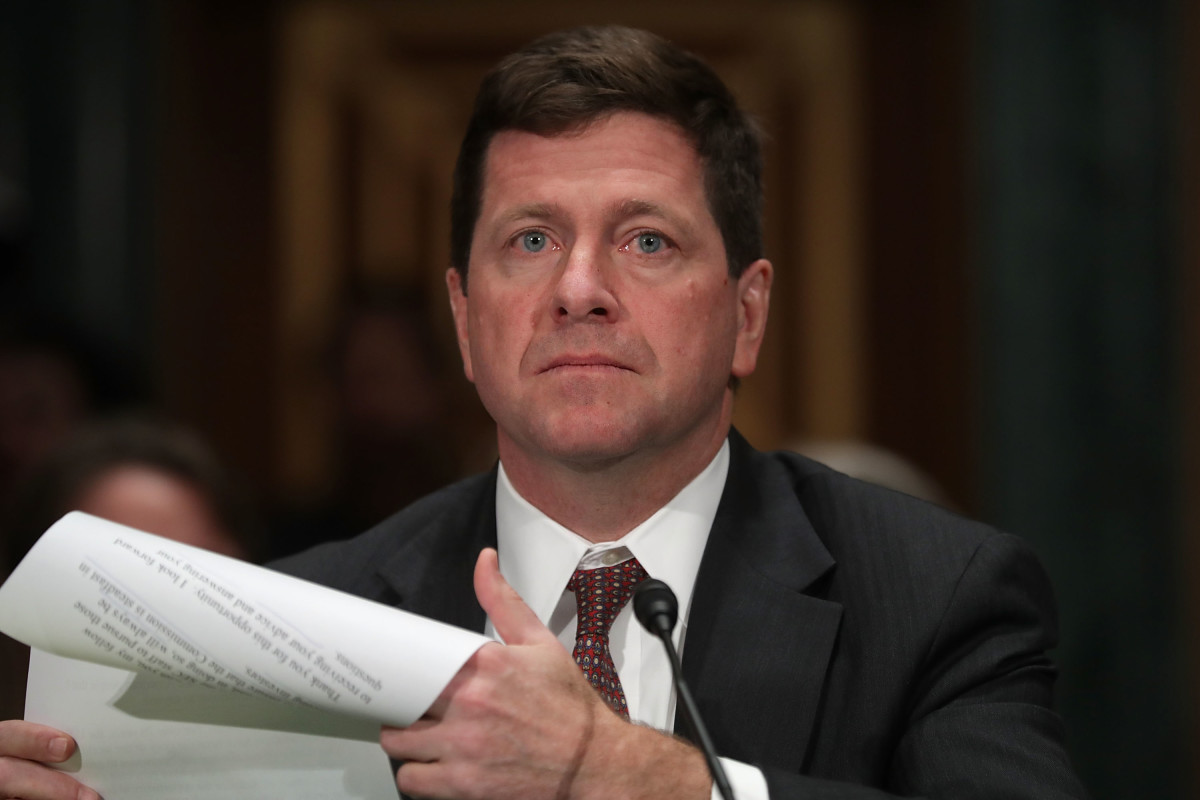The online bar exam is a creature of the coronavirus outbreak.
In one sense, that’s obvious to the extent that this exam process wouldn’t exist absent the health crisis. But the ties between this week’s test and the pandemic response run deeper and more philosophical. From the start, officials told everyone that they weren’t going to let the disease stop them from living their lives or holding their in-person tests. When some states got too bad to ignore the virus, examiners begrudgingly agreed to try an untested, experimental workaround to get the test up and running this year. When early exams crashed, these examiners and their complicit state supreme courts just ploughed ahead. The nationwide voice of the bar exam responded to concerns that this week’s simultaneous exams could be a disaster with, “I would be very surprised if that happened, given all the good and thoughtful professionals who are working on this. Why don’t you interview me Oct. 6?”
That interview probably won’t happen, but we can already scribble out what it would say. Yesterday would be declared a “success” because most people were fine. That those who struggled didn’t just face inconvenience, but endured catastrophic results will just get dismissed with a shrug. “It affects virtually nobody!” we’d be told.
But any bar applicant having to withdraw because the platform wouldn’t work — especially for technical problems that were explicitly pointed out ahead of time — is an unacceptable breakdown. That it appears to have happened to so many makes it a complete disaster regardless of the cheery spin oozing out of bar examiner officers over the coming days.
And so much of this was preventable. From tips we’re getting directly or via social media, the first day of the bar exam went smoothly for a lot of people. However, it went disastrously for a lot of other people. As reports trickled in the issues bore an eerie resemblance to everything we’ve predicted all along: trouble opening the platform, overwhelmed and unavailable tech support, a complete failure to formulate any contingency plan, and racially discriminatory monitoring.
The most tragic of the pandemic parallels is seeing how racism lends its shoulder in propping up the callousness of it all. That COVID has proven more deadly among people of color — likely due to overrepresentation in “essential” jobs and comparatively worse health care options — undergirds the dismissive response in large swaths of this country. And, despite repeated warnings that ExamSoft’s plan to use facial recognition software to flag examinees for cheating would just carry known racial biases in the construction of these algorithms into the exam, officials seemed totally blindsided yesterday when exactly this happened.
This was a known flaw that was pointed out repeated-f**king–ly. I wrote about it. Law.com wrote about it. It was discussed on podcasts. It was raised in filings. After all of these warnings, the abject inability to address it has caused people to withdraw. Absolutely zero high-priced crisis management firm talking points can get around how flatly wrong and discriminatory this is.
Consistently throughout this process, examiners were cautioned to perform a stress test. They refused. Courts and examiners deemed the “mock exams” applicants had to upload as sufficient to test the platform. But many thought that the mock exam process was never going to identify and correct the sorts of problems that would crop up on exam day. And guess what?
Even more important than resolving the technology issues, they needed a stress test for the quality of the technical support response. Reports came in all day of people on the phone for an hour or more trying to get problems resolved. Many were told that the time on the phone came out of their test-taking time.
In California, one older applicant’s troubles went unheeded so long that a friend turned to Twitter and received a less than encouraging response:

A lot of people dunked on ExamSoft here by saying, “I didn’t know having Twitter was required for the exam.” And, yes, the better way to ask would have been “can you provide her name and phone number so we can call her?” but at least they were trying. The bigger problem is that the phone lines were so jammed up that she had to resort to using a third party to publicly call out the company on social media just to get an answer.
Did she get an answer? No friends, she did not.

One of the few truly positive stories of the day involved an applicant who spent hours on the phone between ExamSoft and the bar examiners trying to get the system to work. After being told that even if they could make it work, all the time spent trying to find a solution would not be given back to him for the test, he posted a tragic final update. “I “talked” to ExamSoft again. Got transferred to tech support. After another ~15 minute hold, I realized that I just wouldn’t be able to complete the MPT in time. I’ve withdrawn.” Thankfully, the story had a happy ending as the issue got resolved and the bar examiners reversed the earlier message and restored his full time for the test.
Unfortunately, his story was more of an exception as social media was littered with people announcing that they had withdrawn and an even more disturbing number of those said that they had withdrawn at the suggestion of bar examiners.
That’s not a contingency plan.
If anyone in a position of authority is telling applicants to just try again in February, it amounts to a complete dereliction of duty. However this turns out, the time is now for officials to have a serious conversation about the licensing process. Because while the pandemic may be the proximate cause of these failures, the breakdowns being exposed carry over into normal times as well. If this is how authorities handle easily preventable emergencies, how can any state have confidence in the handling of licensing writ large?
 Joe Patrice is a senior editor at Above the Law and co-host of Thinking Like A Lawyer. Feel free to email any tips, questions, or comments. Follow him on Twitter if you’re interested in law, politics, and a healthy dose of college sports news. Joe also serves as a Managing Director at RPN Executive Search.
Joe Patrice is a senior editor at Above the Law and co-host of Thinking Like A Lawyer. Feel free to email any tips, questions, or comments. Follow him on Twitter if you’re interested in law, politics, and a healthy dose of college sports news. Joe also serves as a Managing Director at RPN Executive Search.





 Tyler Broker’s work has been published in the Gonzaga Law Review, the Albany Law Review, and is forthcoming in the University of Memphis Law Review. Feel free to
Tyler Broker’s work has been published in the Gonzaga Law Review, the Albany Law Review, and is forthcoming in the University of Memphis Law Review. Feel free to 






 Jordan Rothman is a partner of
Jordan Rothman is a partner of 


 Olga V. Mack is the CEO of
Olga V. Mack is the CEO of